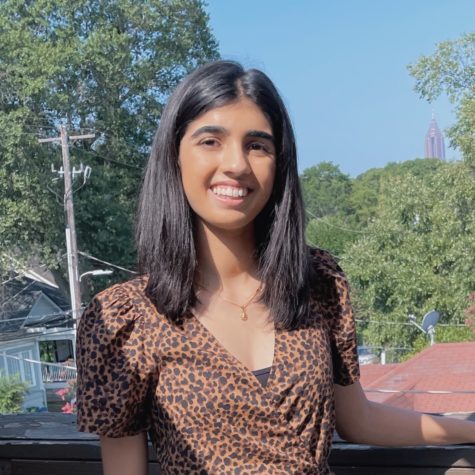Lakhiani: It’s time to learn BIPOC history, culture and joy
February 12, 2021
How much do you actually know about cultures other than your own? Were you taught history that was mostly European or American? Growing up, I only had to learn about Eurocentric topics and was barely taught about cultures outside of that bubble. Those I did learn about were presented through an American lens. On top of barely being taught watered-down Black, Indigenous and people of color (BIPOC) history in America, we were never taught about positive BIPOC attributes.
In today’s American climate, it’s immensely important to learn about BIPOC history and their struggles, especially those of Black and Indigenous people. Black and Indigenous people have suffered hundreds of years of oppression, segregation, stolen land, racism and so much more. Yet, we get only a watered-down version of what minorities in America—let alone other parts of the world—have gone through. We don’t learn the full scale of the atrocities committed against minorities, and we’re taught to believe that everything is in the past, when in fact, it’s not.
The impacts of atrocities like genocide and slavery still remain today.
There is an epidemic of murdered and missing Indigenous women. There is generational trauma among Black people. But I only learned about these things, and much more, through my own research and by listening to those voices, rather than at school. And because we aren’t taught the full extent of BIPOC’s history, many of us are led to believe that things are okay now—that all atrocities have been resolved. These harmful beliefs also result in denial in modern-day systemic racism, such as the demonization of Black Lives Matter.
This ignorance goes hand-in-hand with failing to teach BIPOC joy. A lot of kids develop stereotypes and assumptions about BIPOC from their parents, resulting in prejudice and racism—sometimes perhaps inadvertently. As a result, it’s important that kids in school are taught about the danger of stereotypes and prejudices as well as BIPOC history, including both the atrocities committed against them and the positive impacts of BIPOC on society. Then, we would be headed in the right direction.
The contributions from BIPOC are constantly ignored and belittled, especially those that were critical to the growth of our society. Rulers were created by Indus Civilizations and major blood blanks were first established by Charles Richard Drew, a Black physician. There are countless contributions by BIPOC to society that go unrecognized by the broader public.
Moreover, BIPOC culture is not talked about enough. As a result, cultural appropriation is way too common; when BIPOC speak on cultural appropriation, their voices are constantly ignored and disrespected. Cornrows and other types of braids have a historical and cultural significance to them, yet non-Black people still think they have the right to wear them. Hindu symbols and practices, such as om or chakras, are watered down for “white spirituality” by people who don’t bother to learn the significance of these sacred practices and symbols. Indigenous practices, such as burning white sage, are practiced despite it being a closed and sacred cultural practice. Failure to teach BIPOC culture results in not being able to properly learn and appreciate cultural origins.
BIPOC joy is never showcased, either. We are constantly told to learn about BIPOC struggles, but such struggles are mostly about how white people treat BIPOC, and never about BIPOC identities or individual accomplishments.
In a similar vein, there also aren’t movies, shows or other forms of entertainment that depict “normal” BIPOC life. Why are we only told to read “The Hate U Give” and not anything else about BIPOC joy? A lot of the information we’re given related to Black culture in the U.S. or non-European cultures is always in the context of a Eurocentric view. We don’t get an authentic and full understanding of BIPOC culture because we are only seeing it at its intersection with whiteness.
Failing to learn about full BIPOC culture and history in our education system contributes to ignorance, prejudices and appropriation of cultures.


